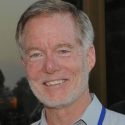
Gordon Chelune
By Nuri Erkut Kucukboyaci, PhD
Dr. Gordon J. Chelune, PhD, ABPP(CN), is a Professor Emeritus of Neurology and a Senior Neuropsychologist at the Center for Alzheimer’s Care, Imaging and Research at the University of Utah. He is also the member of the Brain Institute and of the University of Utah Center on Aging, where he continues to engage in research and teaching.
Dr. Chelune was recently awarded the Baird Award for his productive academic career in neuropsychology and rehabilitation. We caught him for a mini Q&A after his award lecture to discuss his perspective on our evolving field and his advice to early career clinicians.
Q: Based on your observations and expertise, what remains to be the big question for our field?
A: We now have a lot of informative assessments and a lot of interventions with some efficacy. The big million dollar question for our field is to better understand who exactly will benefit maximally from the available treatments. I think we need to get better at characterizing who achieves the biggest gains in therapy under which circumstances. In other words, as psychologists, we need to get better at offering “personalized medicine,” which requires a solid understanding of what exactly are the treatment targets in each case and for whom the interventions present a solid potential.
Q: For those pursuing a more clinical path in rehabilitation and neuropsychology, what is one thing you would emphasize about training?
A: I wish graduate programs in psychology trained everyone better on the practice issues that await the practicing clinicians. There are a lot of real life, administrative and financial issues that catch many psychologists who go into solo practice by surprise and can be overwhelming. I wish we had support and information available on how to make that transition easier.
Q: How about some words of wisdom for those pursuing a more academic path in rehabilitation?
A: I really like it when us researchers spend more time thinking about making our research questions more relevant to the end-user, the patients. I hope all researchers, early career or not, spend more time understanding their patient population and their needs so that their research careers can serve to generate valuable information in matters that truly matter to the patients.










